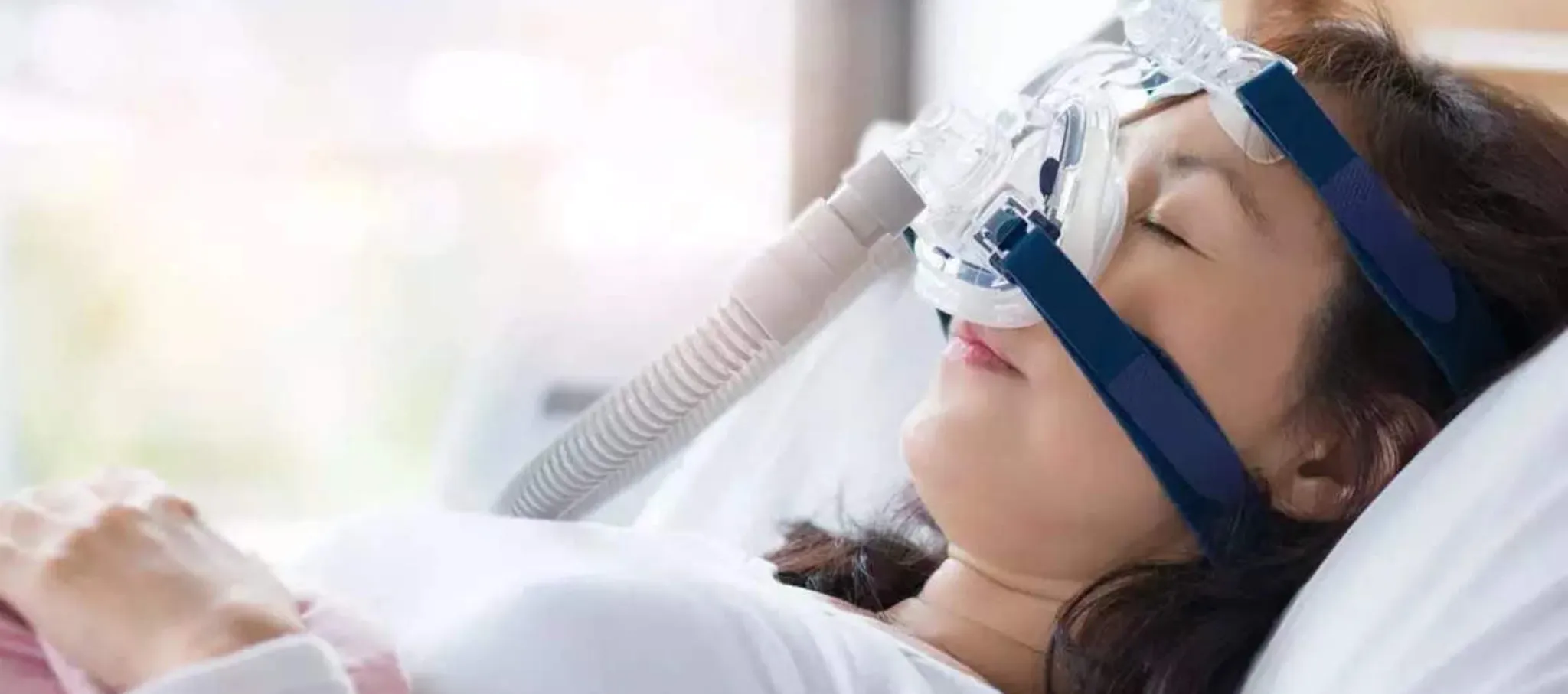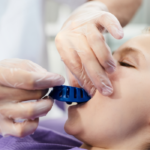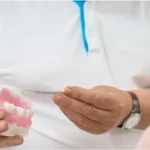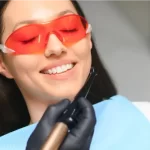Treatment for sleep apnea and snoring works by keeping the airway open during sleep, ensuring normal breathing. The main cause of snoring is the throat tissues vibrating when breathing is disturbed at night.
Sleep apnea happens when breathing stops and starts due to a narrowed or blocked airway. The connection between snoring and sleep apnea is evident, as snoring is a symptom of obstructive sleep apnea. Effective treatments and taking preventive steps toward dental issues can significantly reduce loud and disruptive snoring.
Knowing the exact causes of sleep apnea is important to better understand available treatment options. Finding the right treatment starts with recognizing the problem.
What Leads To Sleep Apnea?
There are many potential causes and risk factors that can lead to the development of sleep apnea. Some of the key factors include –
- Obesity – Carrying excess weight, especially around the neck, can contribute to sleep apnea. Fat deposits around the throat may obstruct the airway during sleep.
- Age – The risk of sleep apnea increases with age as muscles in the throat become more relaxed when sleeping. Menopause for women is also a risk factor.
- Genetics – Sleep apnea often runs in families, so genetics may play a role in susceptibility.
- Anatomy – Having a small throat or jaw, large tongue, or small airway can physically obstruct breathing at night.
- Medical conditions – Poor sleep can lead to diabetes, depression, high blood pressure, neurological disorders, and heart disease have all been linked to increased sleep apnea risk.
- Smoking – Tobacco use irritates the throat and lungs, contributing to swelling and collapsing of the airway at night.
- Gender – Men are at higher risk than women, possibly due to hormonal and anatomical differences. Post-menopausal women have increased risk.
- Alcohol and sedatives – Using these substances before bed can relax throat muscles too much, impeding airflow during sleep.
Understanding these factors can be the first step toward regaining control over your sleep quality. Addressing associated risk factors may help reduce symptoms.
Sleep Apnea Treatment Options
Over time, sleep apnea can cause serious complications. However, this condition is often manageable, especially with close adherence to prescribed Sleep Apnea treatment.
Here are different treatment options and tell you how sleep apnea therapy addresses snoring –
- Continuous Positive Airway Pressure (CPAP): CPAP therapy and snoring is a common treatment where a machine delivers a steady stream of air through a mask, keeping the airway open.
- Bi-level Positive Airway Pressure (BiPAP): Similar to CPAP, BiPAP adjusts the air pressure, providing higher pressure during inhalation and lower pressure during exhalation. With this treatment, you will experience snoring reduction through sleep apnea treatment.
- Adaptive Servo-Ventilation (ASV): ASV is a more advanced therapy that adjusts air pressure based on your breathing patterns, ensuring a more natural breathing rhythm.
- Oral Appliances: These devices, like mouthguards, help reposition the tongue and jaw to keep the airway open.
- Lifestyle Changes: Weight loss, avoiding alcohol and sedatives, and sleeping on your side can reduce symptoms.
- Positional Therapy: Some people experience sleep apnea, mainly when sleeping on their back. Training to sleep on your side can be beneficial.
- Surgery: In severe cases, surgical options such as uvulopalatopharyngoplasty (UPPP) or genioglossus advancement (GA) may be considered to remove or reposition tissue.
Remember, snoring and sleep apnea relief varies among individuals. It’s crucial to work closely with your dental care provider to find the most effective treatment for sleep apnea for your specific situation.
Improve Your Sleep Quality Tailored Sleep Apnea Treatments
Elevate your sleep quality with personalized Sleep Apnea treatment! Discover optimal solutions tailored for you at Dallas Dental Implants and Cosmetic Dentistry.
Uncover the difference with the dentist in Dallas for Sleep Apnea. Don’t compromise on restful nights.
Call Us at 214.350.8678 today and transform your sleep experience! Your journey to better sleep starts here.








4 Comments
Can Sleep Apnea Treatment Help With Snoring? | ...
March 11, 2024[…] Sleep apnea treatment, such as continuous positive airway pressure (CPAP), can help eliminate snoring by keeping the upper airway passages open, preventing both snoring and sleep apnea. […]
SmJoblrVHORytu
March 21, 2024jdxfwUlcEAk
Jim Mendez
June 26, 2024Your blog is a true asset – thank you!Eagerly waiting for the confirmation email to complete my newsletter subscription
https://www.healfirstpharma.com/
QOGovkcP
July 14, 2024HJytFgDmExRjnW